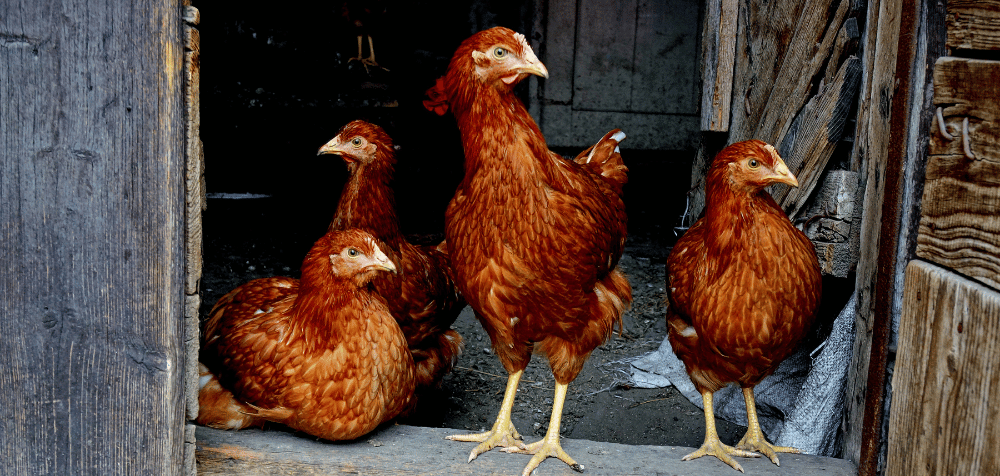One of the most energy-efficient and environmentally-friendly solutions for extra light in your chicken coop is to use a solar panel chicken coop light.
These lights offer a sustainable way to keep your coop illuminated without the need for electricity or running cables across your yard. If you’re considering upgrading your coop’s lighting system, let’s get into why solar lights could be the best solution for you.
Why Choose a Solar Panel Chicken Coop Light?
There are many reasons why switching to a solar panel chicken coop light makes sense. Here’s a quick overview:
- Eco-Friendly: Solar power is one of the cleanest energy sources available. By harnessing the sun’s energy, you reduce your carbon footprint and contribute to a healthier environment.
- Cost-Effective: Although the initial cost of purchasing a solar panel light system might be higher than traditional lights, you’ll save money in the long run as there are no ongoing electricity costs.
- Easy Installation: Solar panel lights don’t require complicated wiring, which makes installation straightforward. You just need to place the solar panel in a sunny spot and mount the light inside the coop.
- Reliable: As long as the sun shines, your solar panel chicken coop light will work, meaning you won’t have to worry about power outages or faulty wiring.
Benefits of a Solar Panel Chicken Coop Light

Let’s take a deeper look at some of the benefits of using solar-powered lights in your chicken coop:
1. Consistent Lighting for Egg Production
Chickens rely on a certain amount of daylight to maintain their egg-laying routine. During the winter, when the days are shorter, it can lead to decreased egg production. By using a solar panel chicken coop light, you can extend the light exposure, simulating longer daylight hours. This helps your hens keep up their egg production, even when the natural daylight isn’t cooperating.
2. Energy Independence
One of the standout advantages of solar power is energy independence. You won’t need to worry about increasing utility bills or dealing with power outages. As long as your solar panel is exposed to sunlight during the day, it will recharge and provide light for your chickens throughout the night.
3. Safety and Security
A well-lit coop is a safer coop. Predators like raccoons, foxes, and coyotes are less likely to approach a brightly lit area. Installing a solar panel chicken coop light can deter these animals from attacking your flock during the night. Plus, it gives you peace of mind knowing your chickens are protected.
Types of Solar Panel Chicken Coop Lights
Not all solar panel lights are the same, and it’s important to choose the right one for your needs. Here are some types to consider:
1. Motion-Sensor Solar Lights
Motion-sensor lights are a great option for chicken coops because they only turn on when they detect movement. This can help you save energy and increase the lifespan of the light. These lights also serve as an added security feature, alerting you to the presence of predators or other intruders.
2. Solar Floodlights
For larger coops or outdoor areas, solar floodlights offer a broader range of illumination. These powerful lights are perfect for larger coops or runs where you need to light up a wide space. Their brightness can also act as a deterrent for nighttime predators.
3. Hanging Solar Coop Lights
Hanging solar lights are a great choice for smaller coops. They usually come with a pull chain or switch, allowing you to control when the light is on or off. These lights are ideal for keeping your coop illuminated during early mornings or evenings when you’re collecting eggs or checking on your flock.
What to Look for When Buying a Solar Panel Chicken Coop Light

When choosing the best solar panel chicken coop light for your setup, here are a few factors to consider:
1. Brightness
The brightness of the light will depend on the size of your coop. For smaller coops, a light with lower lumens may be sufficient, but for larger coops or chicken runs, you’ll need something brighter. Look for lights that provide the right amount of illumination for the area you want to cover.
2. Battery Capacity
The battery capacity determines how long the light will last after charging. A larger battery capacity ensures that your light stays on longer, even on cloudy days. You’ll want to check how many hours of light the battery can provide, especially during winter months when sunlight is limited.
3. Durability
Since the solar panel and light will be exposed to the elements, durability is key. Look for waterproof and weather-resistant lights that can withstand rain, snow, and extreme temperatures.
4. Ease of Installation
Choose a solar panel chicken coop light that is easy to install. Many models come with mounting hardware and easy-to-follow instructions, so you don’t need to be an expert to set it up. Consider where you’ll place the solar panel, ensuring it gets enough sunlight during the day.
5. Additional Features
Some solar lights come with added features such as remote controls, adjustable brightness settings, or automatic timers. These can be handy, especially if you want to customize the lighting schedule for your chickens or if you live in an area with varying weather conditions.
How to Install Your Solar Panel Chicken Coop Light
Here’s a quick guide to installing your solar panel chicken coop light:
- Choose the Location: First, find a spot where the solar panel will receive direct sunlight for most of the day. This is crucial for ensuring the battery charges fully.
- Mount the Solar Panel: Using the provided hardware, attach the solar panel to the roof or side of your chicken coop, making sure it’s angled correctly for maximum sun exposure.
- Position the Light: Inside the coop, mount the light fixture where it will provide the most illumination. Avoid placing it too close to the chickens’ roosting area, as bright lights may disturb their sleep.
- Connect the Wires: Connect the solar panel to the light fixture using the provided cables. Make sure the connections are secure and protected from the elements.
- Test the System: Once everything is set up, test the light to ensure it’s working properly. Adjust the angle of the solar panel if needed to improve performance.
Conclusion: The Best Solar Panel Chicken Coop Light for You
Choosing the right solar panel chicken coop light can make all the difference in maintaining egg production, keeping your chickens safe, and reducing your environmental impact.
Whether you go for a motion-sensor model, floodlight, or simple hanging light, the benefits of solar power are clear, it’s cost-effective, reliable, and eco-friendly.
So, if you’re ready to light up your coop in the most sustainable way, consider making the switch to solar-powered lighting today!

